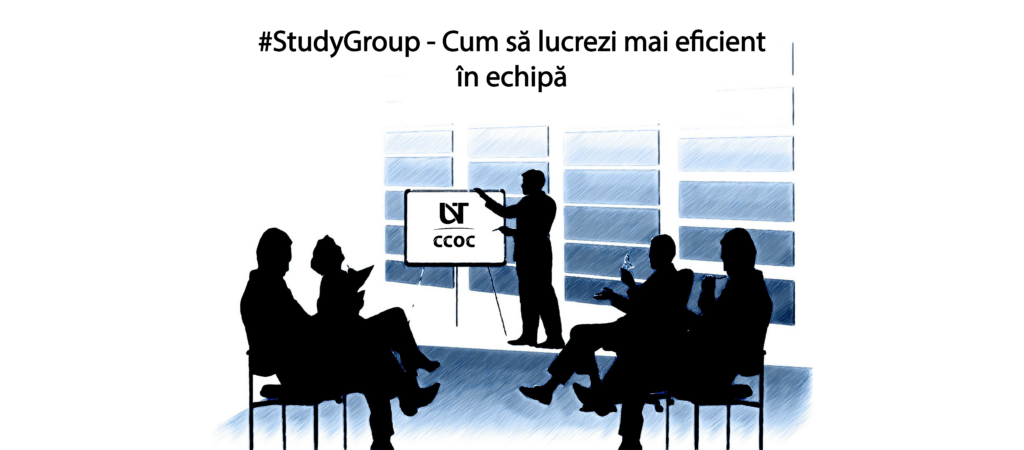
#StudyGroup - How to work more effectively as a team

George BUNESCU
Counselor at the Career Counseling and Guidance Center (CCOC) of the UVT
"How can I work better as a team?", "Why do I get to do all the team work?"; “How do I approach this situation as a team?”… These questions and many more arise when we are asked the context of having a task to solve in the team within the activities of a discipline within the study program where we are enrolled.
During your studies you learn more than the theoretical information specific to a professional field, developing various transversal skills that can help you in various contexts after graduation.
Participating in group activities during studies that involve solving tasks such as teamwork, time management, public speaking, how to synthesize and develop a material using scientific sources, how to put into practice what you learn in the courses theoretical and much more.
Solving team tasks, there are several techniques through which you can support the efficiency of the group's activity, through your individual contribution, as a team member, further presenting some suggestions in this regard.
How to be a good teammate?
- • Listen actively - listen to your colleagues' ideas, summarize them to make sure you understand them well and ask questions about them in case something didn't seem clear to you.
- • Support the ideas you like.
- • offers constructive feedback colleagues - example: "I like your idea and I would add that it would be better if we do the experiment in a controlled environment."
- • Carry out your part of the project on time.
- • If you see that a colleague is having difficulty, you can choose to give him your support.
- • Stay open to implement ideas generated by your colleagues.
- • Respect the ideas of others and listen to them to the end.
- • Assume if you don't know something and ask for help from the team or someone who might have the answer.
In addition to the individual contribution of each, the team works as a whole and goes through different stages of development (see Tuckman, 19651). At the team level, there may be some ambiguities, difficulties or confrontations that are natural in the process of elaborating and accomplishing a specific task (project, etc.). For these stages, there are several activities and actions that can support the proper functioning of the group:
In short, how to make the team work more efficiently?
- • Make sure every team member knows what to do.
- • set clear deadlines - example: "we finish the project by Wednesday, 14:00".
- • Set your team roles - example: "I can take care of the introductory part and you take care of the results?".
- • Meet regularly, using an "agenda of the day" - example: "Today we will discuss the introduction and methodology, we have 3 weeks until the end of the project".
- • Use brainstorming to generate ideas.
- • Vote democratically the best way to implement the task.
- • Use arguments to support your point of view.
- • Agree a team coordinator / leader.
- • Find out who it is the progress of each colleague in completing the task, asking them at meetings or directly.
- • Communicate constantly during the activity.
- • If one aspect is not clear to you, ask someone who could clarify.
Group projects carried out during studies can be a great opportunity to acquire new skills, to learn different points of view and to develop and demonstrate certain skills.
If you need support to learn more about the principles of teamwork, we invite you to sign up for an individual career counseling session by filling out the form available. HERE, in section Individual counseling services for students, or to participate in the webinars and workshops that the Career Counseling and Guidance Center (CCOC) of UVT organizes for students.
Good luck solving team tasks in the most efficient way possible!
1Tuckman, BW (1965). Developmental sequence in small groups. Psychological Bulletin, 63 (6), 384–399. He points out in his article four stages in the development of a group: formation, transition, standardization and performance. These were later taken over and developed, and can be viewed graphically here.
